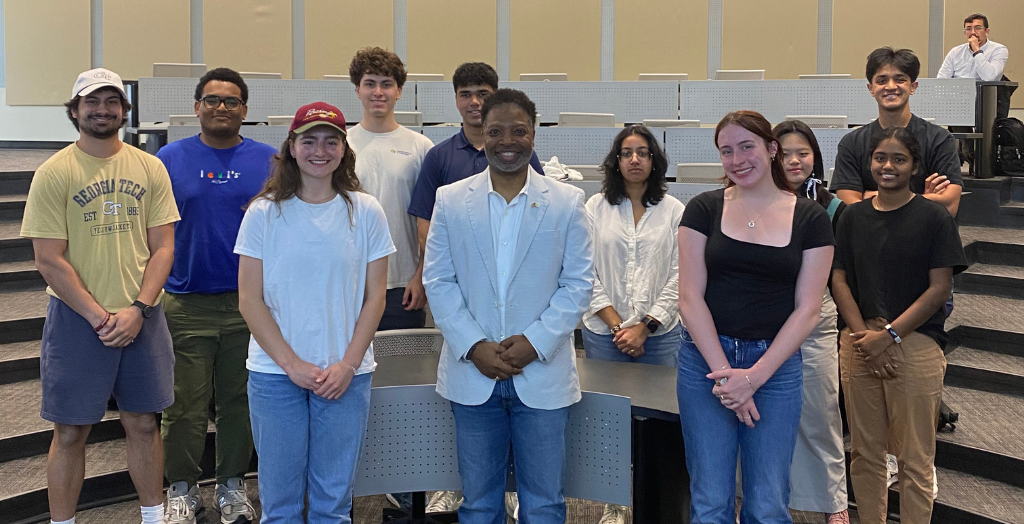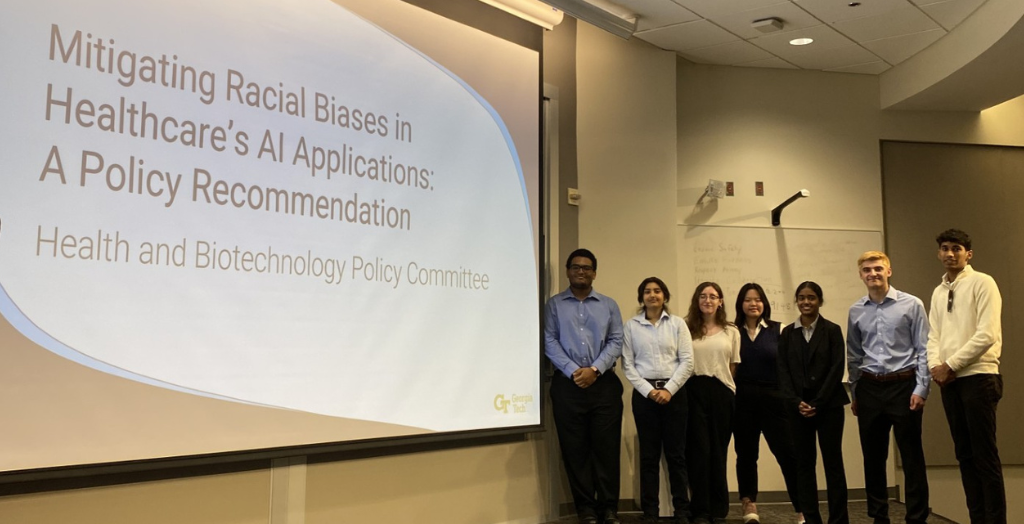Christine Webster, a fifth-year public policy major, brought back a piece of her Federal Jackets internship from D.C. with her.
Her new organization, Science and Technology Policy Connections, brings students together across disciplines to help inform local, state, and federal legislation.
"A lot of these representatives really do want to speak with us students and hear our thoughts and views and what we're passionate about," Webster said. "So I wanted to streamline a more direct line of communication between Georgia Tech students and policymakers."
How It Works
- The group includes students in aerospace engineering, computer science, international affairs, public policy, and more.
- Throughout the year, they focused on three high-impact areas: energy and the environment, cyber defense, and health and medical.
- The students split into three sections — one for each topic — and picked an issue to research, learning how to find reliable sources and hone their public speaking skills.
- The Spring semester culminated with policy recommendations on aviation sustainability, deepfakes, and AI and racial bias in medicine.

Students pose with guest speaker Michael Owens at the club's Cyber and Defense Policy event. Owens is the mayor of Mableton, Georgia, and a cybersecurity expert.
Mishayla Harve, a second-year neuroscience and public policy student, is leading her group's paper on AI and racial bias to publication in the 2024 Summer Issue of the Journal of Science Policy and Governance.
She plans to attend medical school after graduation and says the combination of liberal arts and STEM perspectives is a recipe for success in the Science and Technology Policy Connections club — and her future career.
“Patient care is more than just diagnosing or prescribing a solution immediately to the patient. It’s also understanding patients beyond hospital walls and in the community context,” Harve said.
“I enjoy public policy as a major because it delves into something beyond just the objective solutions. AI is definitely a helpful innovation and will become more prevalent the more that it’s developed. But we do need to bring it back and understand the unintended consequences of AI. And that’s where the racial bias comes in and that’s where my policy group hopefully comes in as well.”

Harve and her group present policy recommendations on Mitigating Racial Bias in Healthcare's AI Applications at the club's Spring showcase event.
Students in the club also had opportunities to engage directly in policy discussions through seminars, workshops, and networking events.
They set up meetings with staffers of Georgia Senators Raphael Warnock and Jon Ossoff to discuss the legislators’ concerns and learn more about the priorities on their political agenda and how the group can adjust their research to help.
Collaborating across disciplines gives them a powerful perspective that policymakers can use, Webster said.
"We want to highlight the unique intersection of humanities and STEM here at Georgia Tech. Many of us are passionate about technology, and many of our courses revolve around emerging technologies. That perspective, especially since we are so forward thinking and we care about the future, is something valuable we have to offer."
Get Involved!
To get involved with Science and Technology Policy Connections, visit the group's booth at the Fall Student Organizations Fair or check out their LinkTree for social media links and more.
Webster encourages anyone who is interested to join, and no prior research experience is necessary.
"Together, we can drive meaningful change by ensuring policymakers are well-informed of both the technical aspects and societal impacts of their decisions," she said.






